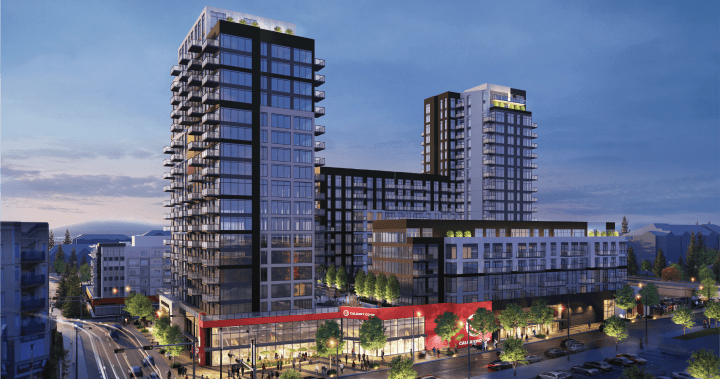Last night’s city council meeting stretched well into the evening as residents and developers squared off over the controversial Marda Loop tower development. After hours of passionate debate, council ultimately approved the zoning changes needed for the project to proceed.
I’ve covered development battles in Calgary for nearly a decade, and this one had all the familiar elements – developers promising economic benefits, residents concerned about neighborhood character, and councillors caught in the middle trying to balance competing interests.
The approved project will bring a significant change to the Marda Loop area, with a mixed-use tower that stands considerably taller than surrounding buildings. While supporters see it as a necessary step toward densification, many locals worry about traffic congestion, shadows, and what they describe as the “erosion of community character.”
Ward 8 Councillor Courtney Walcott, who represents the area, acknowledged the difficult balance. “We need to consider both our housing needs and the legitimate concerns of established neighborhoods,” he told me after the vote. “This decision wasn’t taken lightly.”
The Calgary Planning Commission had previously recommended approval, citing alignment with the city’s densification goals and transit-oriented development strategies. According to city planners, the project meets key criteria for sustainability and efficient land use.
What struck me most during the public hearing portion was the generational divide among speakers. Younger residents generally supported the development, with several mentioning housing affordability concerns. One speaker, Emma Chen, a 29-year-old renter in the area, was particularly direct: “We need more housing options in established communities if young professionals are ever going to afford to live in the neighborhoods we love.”
Meanwhile, many long-time residents expressed frustration with what they see as rapid change. Harold Jeffries, who’s lived in Marda Loop for over 30 years, told council, “This isn’t about opposing growth – it’s about reasonable, contextual development that respects what makes our community special.”
The developer’s representatives emphasized the project’s potential economic benefits, estimating creation of 300 construction jobs and long-term opportunities for local businesses. They also highlighted design modifications made following community consultation, including setbacks on upper floors and enhanced public spaces at street level.
According to data from the City of Calgary’s planning department, this approval continues a trend of increasing density in established inner-city neighborhoods. The city’s Municipal Development Plan targets 50% of new housing growth in established areas by 2069, and projects like this are seen as crucial to meeting those goals.
What many residents found frustrating was the feeling that the outcome was predetermined. Having covered countless similar hearings, I’ve observed a pattern where developers regularly secure approvals despite neighborhood opposition – raising questions about the effectiveness of Calgary’s community consultation process.
When I asked Mayor Jyoti Gondek about this perception after the meeting, she emphasized the city’s commitment to meaningful engagement while acknowledging the need for difficult decisions. “We hear the concerns, we truly do,” she said. “But we also have responsibility to consider Calgary’s broader housing needs and growth strategy.”
The approved zoning changes will allow construction to begin later this year, with completion expected by late 2026. The developer has committed to ongoing community liaison throughout construction to address concerns about noise, dust and traffic disruptions.
For Marda Loop, this marks another step in its ongoing evolution from a sleepy residential district to one of Calgary’s more vibrant mixed-use neighborhoods. Whether that change represents progress or problem depends entirely on whom you ask.
As Calgary continues growing, these tensions between preservation and development will only intensify. The real challenge for city leaders isn’t just making individual project decisions, but creating a planning process that residents trust, even when they disagree with outcomes.
Based on my years reporting on Calgary’s development battles, I believe we need more honest conversations about the trade-offs involved in city building. Communities deserve transparency about how decisions are made, while developers need predictable processes. Finding that balance remains elusive, but essential for Calgary’s future.







